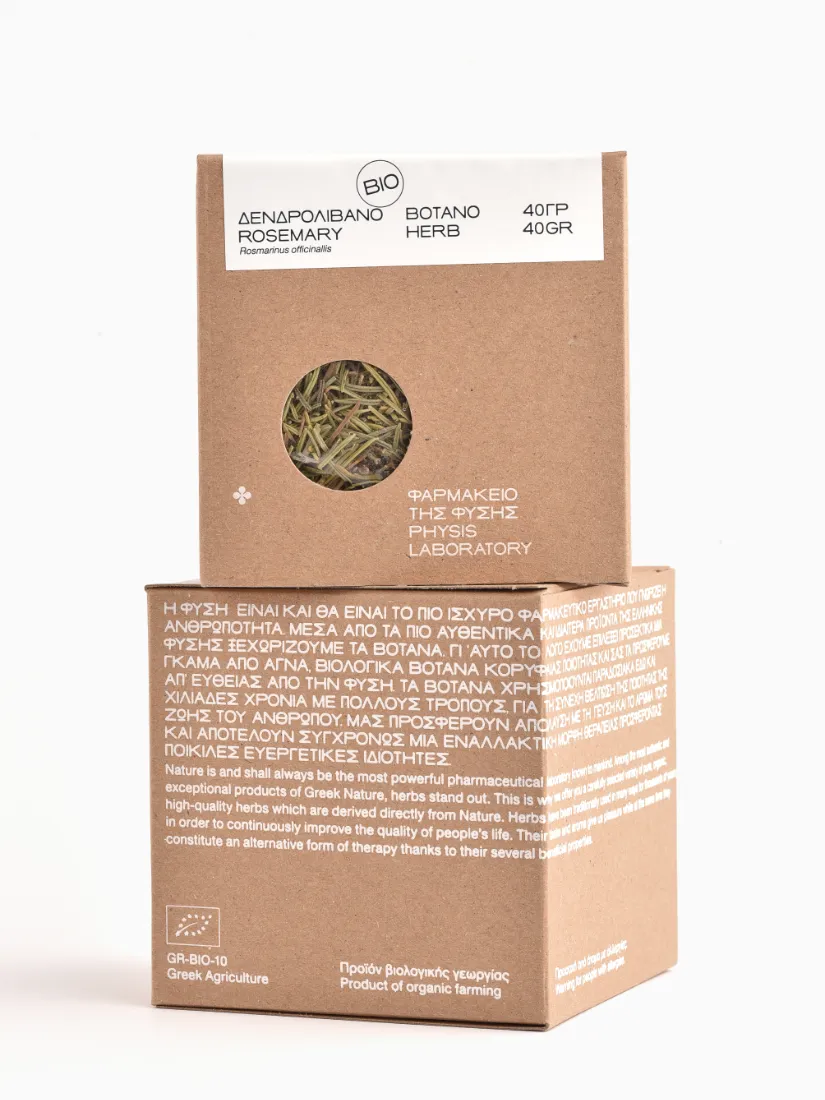Zappalà A., Vicario N., Calabrese G., Turnaturi R., Pasquinucci L., Montenegro
L., Spadaro A., Parenti R. & Parenti C., (2021). Neuroprotective effects of
Rosmarinus officinalis L. extract in oxygen glucose deprivation (OGD)-injured
human neural-like cells. Natural Product Research, 35(4): 669-675.
https://doi.org/10.1080/14786419.2019.1587428
2. Borrás-Linares I., Stojanović Z., Quirantes-Piné R., Arráez-Román D., Švarc-
Gajić J., Fernández-Gutiérrez A. & Segura-Carretero A., (2014). Rosmarinus
officinalis leaves as a natural source of bioactive compounds. International
Journal of Molecular Sciences, 15(11): 20585-20606.
https://doi.org/10.3390/ijms151120585
3. Ielciu I., Niculae M., Pall E., Barbălată C., Tomuţă I., Olah N.K., Burtescu R.F.,
Benedec D., Oniga I. & Hanganu D., (2022). Antiproliferative and
Antimicrobial Effects of Rosmarinus officinalis L. Loaded Liposomes.
Molecules, 27(13): 3988. https://doi.org/10.3390/molecules27133988
4. Mantzourani C., Tarantilis P.A. & Kokotou M.G., (2023). Carnosic Acid and
Carnosol: Analytical Methods for Their Determination in Plants, Foods and
Biological Samples. Separations, 10: 481.
https://doi.org/10.3390/separations10090481
5. Ahmed H.M. & Babakir-Mina M., (2020). Investigation of rosemary herbal
extracts (Rosmarinus officinalis) and their potential effects on immunity.
Phytotherapy Research, 34(8): 1829-1837. https://doi.org/10.1002/ptr.6648
6. Günther M., Karygianni L., Argyropoulou A., Anderson A.C., Hellwig E.,
Skaltsounis A.L., Wittmer A., Vach K. & Al-Ahmad A., (2022). The
antimicrobial effect of Rosmarinus officinalis extracts on oral initial adhesion
ex vivo. Clinical Oral Investigations, 26(6): 4369-4380.
https://doi.org/10.1007/s00784-022-04400-5
7. Valones M.A.A., Silva I.C.G., Gueiros L.A.M., Leão J.C., Caldas A.F. Jr &
Carvalho A.A.T., (2019). Clinical Assessment of Rosemary-based Toothpaste
(Rosmarinus officinalis Linn.): A Randomized Controlled Double-blind Study.
Brazilian Dental Journal, 30(2): 146-151. https://doi.org/10.1590/0103-
6440201902164
8. Manilal A., Sabu K.R., Woldemariam M., Aklilu A., Biresaw G., Yohanes T., Seid
M. & Merdekios B., (2021). Antibacterial Activity of Rosmarinus officinalis
against Multidrug-Resistant Clinical Isolates and Meat-Borne Pathogens.
Evidence-Based Complementary and Alternative Medicine.
https://doi.org/10.1155/2021/6677420
9. Tsai C.W., Liu K.L., Lin Y.R. & Kuo W.C., (2014). The mechanisms of carnosic
acid attenuates tumor necrosis factor-α-mediated inflammation and insulin
resistance in 3T3-L1 adipocytes. Molecular Nutrition and Food Research,
58(4): 654-664. https://doi.org/10.1002/mnfr.201300356
10. Yun Y.S., Noda S., Shigemori G., Kuriyama R., Takahashi S., Umemura M.,
Takahashi Y. & Inoue H., (2013). Phenolic diterpenes from rosemary suppress
cAMP responsiveness of gluconeogenic gene promoters. Phytotherapy
Research, 27(6): 906-910. https://doi.org/10.1002/ptr.4794
11. Satoh T., Trudler D., Oh C.K. & Lipton S.A., (2022). Potential Therapeutic Use
of the Rosemary Diterpene Carnosic Acid for Alzheimer's Disease, Parkinson's
Disease, and Long-COVID through NRF2 Activation to Counteract the NLRP3
Inflammasome. Antioxidants, 11(1): 124.
https://doi.org/10.3390/antiox11010124
12. Nematolahi P., Mehrabani M., Karami-Mohajeri S. & Dabaghzadeh F., (2018).
Effects of Rosmarinus officinalis L. on memory performance, anxiety,
depression, and sleep quality in university students: A randomized clinical
trial. Complementary Therapies in Clinical Practice, 30: 24-28.
https://doi.org/10.1016/j.ctcp.2017.11.004

